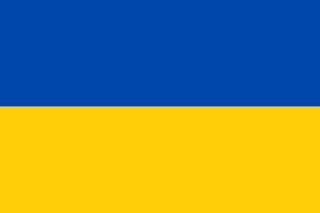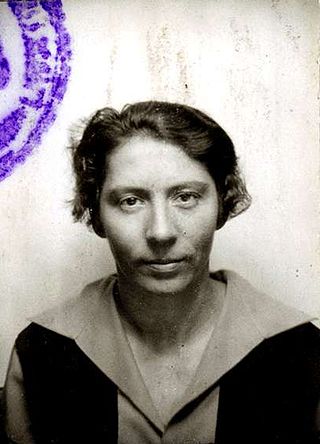Related Research Articles

The German revolution of 1918–1919, also known as the November Revolution, was an uprising started by workers and soldiers in the final days of World War I. It quickly and almost bloodlessly brought down the German Empire, then in its more violent second stage, the supporters of a parliamentary republic were victorious over those who wanted a soviet-style council republic. The defeat of the forces of the far Left cleared the way for the establishment of the Weimar Republic.

The Socialist Workers' Party of Germany was a centrist Marxist political party in Germany. It was formed as a left-wing party with around 20,000 members which split off from the SPD in the autumn of 1931. In 1931, the remnants of Independent Social Democratic Party of Germany (USPD) merged into the party and in 1932 some Communist Party dissenters also joined the group as well as a part from the Communist Party Opposition. Nevertheless, its membership remained small. From 1933, the group's members worked illegally against Nazism.

The Free State of Brunswick was a state of the German Reich in the time of the Weimar Republic. It was formed after the abolition of the Duchy of Brunswick in the course of the German Revolution of 1918–19. Its capital was Braunschweig (Brunswick). In 1933 it was de facto abolished by Nazi Germany. The free state was disestablished after the Second World War in 1946.

Walter Weidauer was a German politician. He was the "lord mayor" of Dresden during the most intensive period of the city's rebuilding, between 1946 and 1958.
Rosa Aschenbrenner was a German politician. After the Second World War, she became increasingly marginalised from the political mainstream because of her opposition to rearmament.

Antonie Langendorf was a German political activist and politician.

Olga Körner was a German political activist and a co-founder of the proletarian women's movement in Dresden. Between 1930 and 1933 she sat as a member of the national parliament ("Reichstag").
Hermann Schubert was a German political activist and politician. In 1924 he briefly sat as a member of the national parliament (Reichstag), representing the Communist Party of Germany.
Marie Martha Schlag was a German politician. During the Weimar period she sat as a member of the Saxony regional parliament . Later, in April 1946, she was a delegate at the party conference which enacted the contentious merger that gave rise to the Socialist Unity Party (SED), after 1949 the ruling party in a new kind of one-party dictatorship, the Soviet sponsored German Democratic Republic.
Minna Reichert was a German peace activist and female politician of the Social Democratic Party of Germany, the Independent Social Democratic Party of Germany and the Communist Party of Germany. In 1920/21 she sat as a member of the Prussian assembly, the precursor body of the Prussian regional legislature ("Landtag").
Johanna Ludewig was a German politician. As a member of the Prussian parliament between 1921 and 1933 she was particularly active in the Communist Women's movement. During 1944 she survived approximately three weeks as an internee in the Ravensbrück concentration camp.
Anna Geyer was a German politician and journalist.
Philipp Fries was a German politician. He sat as a member of the national parliament ("Reichstag") between 1920 and 1924.
Margarete Nischwitz was a German political activist and politician (KPD). She sat as a member of the Saxony regional parliament (Landtag) in Dresden between 1929 and 1933.

Saxony in the German Revolution (1918–1919) followed a path that went from early control by workers' and soldiers' councils to the adoption of a republican constitution in a series of events that roughly mirrored those at the national level in Berlin. Because some members of the revolutionary councils, which were set up in major cities such as Dresden, Leipzig and Chemnitz, wanted a soviet-style council government while others favored a parliamentary republic, there was considerable internal disagreement that caused a split between the two groups. In early February 1919, elections were held for a state assembly, the Volkskammer, in which the moderates gained control. An outbreak of violence at the time of the March 1919 Kapp Putsch led the national government to forcibly remove the Leipzig workers' council, the last one remaining in the state. Saxony went on to become a constituent state within the Weimar Republic in November 1920.
Arthur Lieberasch was a Communist trades union official who became a member of the Parliament of Saxony and, after 1933 an anti-government resistance activist.
Sepp Oerter was a German politician and journalist. As a young man he was an activist member of various anarchist groups. He later moved over to socialist groupings and parties, including the Social Democratic Party (SPD) and, after the SPD split, the anti-war Independent Social Democratic Party . During and directly after the revolution, for two months during the first half of 1919 and then for more than a year during 1920/21, he served as head of the regional government / Minister-president in the Free State of Braunschweig (Brunswick). By the time of his death he had broken with the political left and joined the National Socialists.
Aloys Georg Rink was a German politician. He served as a member of the Landtag in the so-called People's State of Hesse between 1921 and 1922 and again between 1931 and 1933. After 1945, with Hesse now a part of the US occupation zone until May 1949, and thereafter a constituent element of the Federal Republic of Germany, Rink served as a member of the Landtag of Hesse between December 1946 and November 1950.
Helene Glatzer was a young Communist politician who after 1933 became a German anti-government resistance activist. She died - some sources state simply that she was murdered - following several days of questioning and torture at the police facility in the Hallmarkt district of central Halle.
Richard Schubert was a German political activist who by the end of the First World War had become a peace activist. He joined the anti-war Independent Social Democratic Party when it was launched in 1917 and switched to the Communist Party soon after its establishment. He played a leading part in the turmoil in Zwickau during the months of revolution in the ports and cities that followed the war, and was a leading figure locally in the communist parties during the politically fractious 1920s. In 1931 he became a member of the Saxon state parliament (Landtag), but his political career was cut short by the change of government and abolition of democracy during 1933.
References
- 1 2 3 4 5 Hermann Weber; Andreas Herbst. "Silbermann, Max * 18.1.1896, † 5.2.1968". Handbuch der Deutschen Kommunisten. Karl Dietz Verlag, Berlin & Bundesstiftung zur Aufarbeitung der SED-Diktatur, Berlin. Retrieved 28 May 2018.
- ↑ "Weimarer Landtag (1919 - 1933)". Nach dem Ende der Monarchie in Sachsen übernahm der Sächsische Landtag die Souveränität und erlangte gemäß der Verfassung von 1920 das Recht, die Regierung zu berufen. Das vorläufige Ende des demokratischen Parlamentarismus kam mit der Machtergreifung der Nationalsozialisten. Sächsischer Landtag, Dresden . Retrieved 29 May 2018.
- ↑ Martin Schumacher (Hrsg.): M.d.L. Das Ende der Parlamente 1933 und die Abgeordneten der Landtage und Bürgerschaften der Weimarer Republik in der Zeit des Nationalsozialismus. Politische Verfolgung, Emigration und Ausbürgerung 1933–1945. Droste, Düsseldorf 1995, ISBN 3-77005-189-0, p. 153.